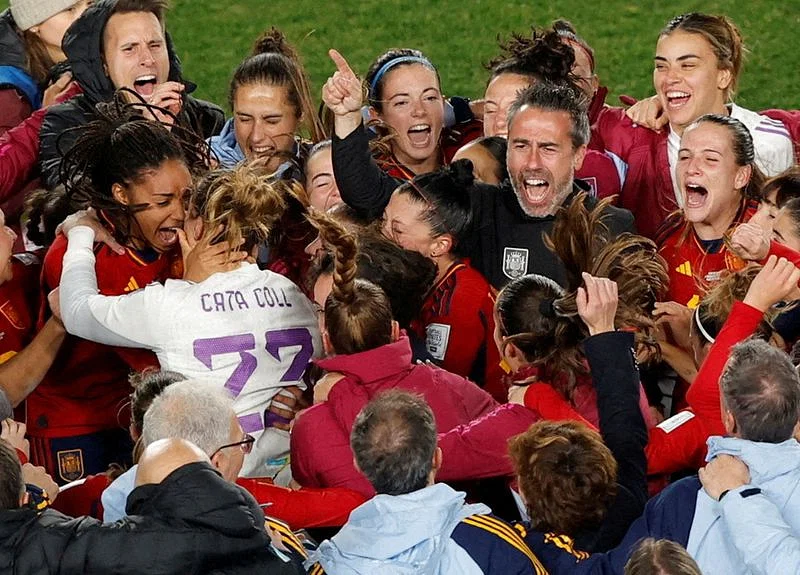MADRID (Reuters) – Spain has emerged as an unexpected sensation in the Women’s World Cup, defying expectations to reach the finals for the first time. This remarkable achievement, however, comes against the backdrop of a locker room uprising that led to the departure of some of their top players.
In September of the previous year, a substantial contingent of players conveyed to the Spanish Football Association (RFEF) their intention to leave the national team while Jorge Vilda, the long-standing coach, remained in charge. This sparked a seismic shift within an already fractured team environment.
Luis Rubiales, the President of RFEF, received a series of 15 emails, each penned in the first person but conveying a uniform message. The contents of these messages were consistent:
“I am writing to inform you that the recent events and the ensuing circumstances surrounding the Spanish national team, a matter of which you are well aware, have had a profound impact on my emotional well-being and, by extension, my health. Consequently, I do not presently deem myself to be in a suitable condition to represent the national team. I request that my selection be deferred until this situation finds resolution.”
Three other individuals, namely captain Irene Paredes, experienced striker Jennifer Hermoso, and twice Ballon d’Or awardee Alexia Putellas, offered their support to their fellow teammates, yet refrained from submitting letters.
Reports of a divided dressing room and strained relations with Vilda had been circulating within the team even prior to and during the Euro 2022, escalating further following a heart-wrenching loss to England in the quarter-finals.
According to these reports, players expressed discontent with the RFEF’s perceived lack of commitment to the women’s team, alongside reservations about Vilda’s training methodologies, which were no longer resonating with the squad.
It is important to clarify that the upheaval was never linked to any inappropriate behavior, and the campaign suffered from the absence of any public declarations by players, outlining their specific demands. They only refuted claims that they were seeking Vilda’s dismissal. Throughout this tumultuous period, the RFEF maintained its support for Vilda and subsequently omitted the involved players from his team selection.
Prominent figures such as Sandra Panos, Patri Guijarro, Mapi Leon, and Claudia Pina, pivotal players in Barcelona’s triumphant Champions League campaign, were among those excluded. Paredes and Hermoso were also affected.
Despite the absence of several star players, Spain’s substantial reservoir of talent enabled them to remain fiercely competitive. A series of successful outcomes bolstered both Vilda’s and the RFEF’s positions, leading to a reversal of course by eight of the 15 dissenting players several months later. These players expressed a desire to be reintegrated into the squad in anticipation of the World Cup.
Hermoso and Paredes had already reconciled with the RFEF and were reinstated, but Vilda accommodated only three of the remaining dissenters in his World Cup roster.
Consequently, a team that could have been one of the strongest and most captivating in the world entered the tournament with shattered spirits and diminished credibility.
Nonetheless, even without the excluded players and with Putellas still regaining her form following a nearly year-long absence due to an ACL injury, Spain has illuminated the grandest stage. The 4-0 loss to Japan in the group stage now appears as an anomaly as ‘La Roja’ brace themselves for a momentous showdown against England on Sunday, backed by the resounding support of their nation.
